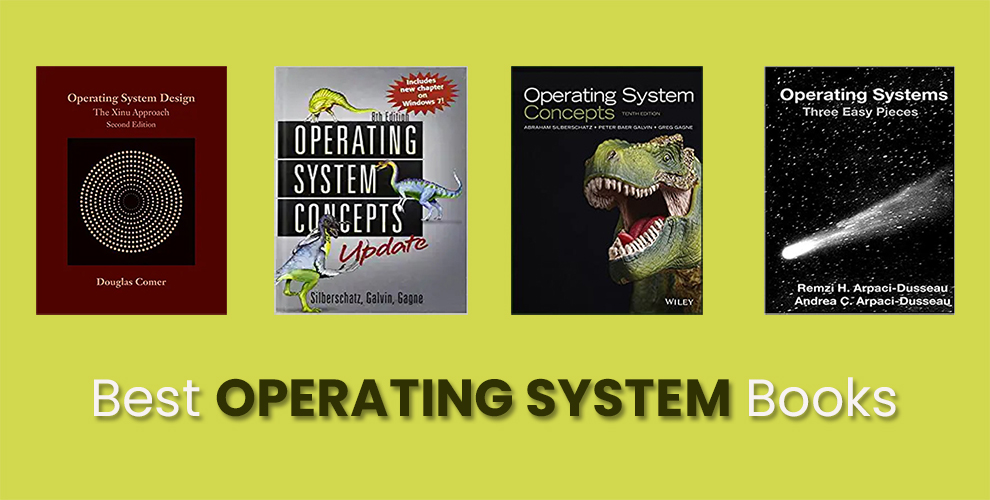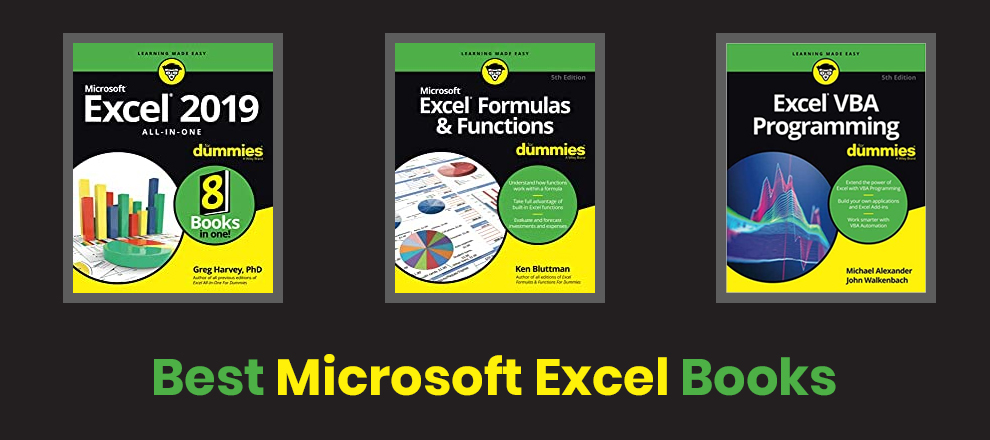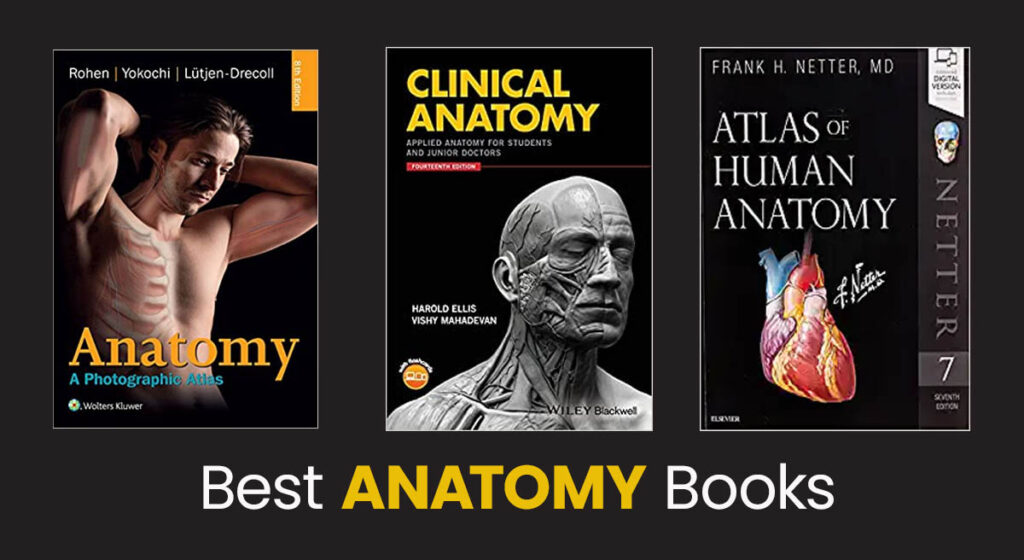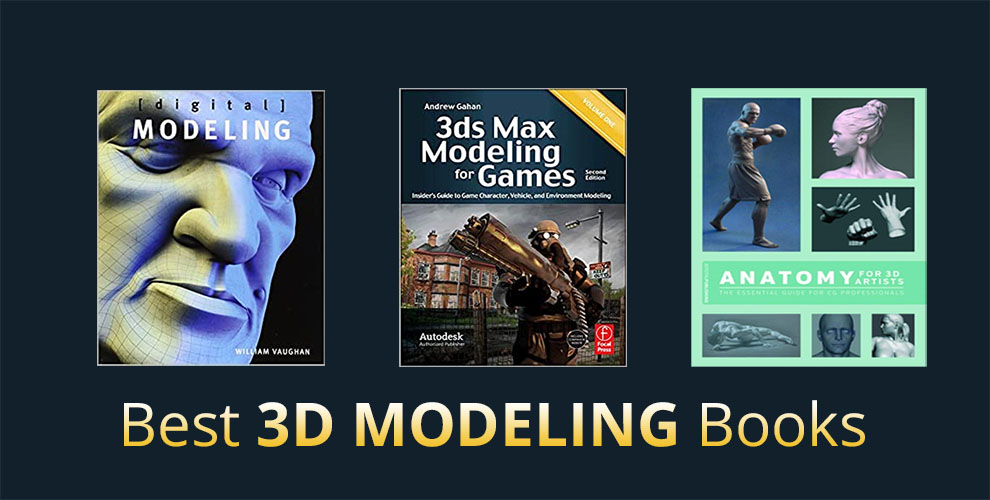Imagine having to communicate directly with the computer components using their machine-level language, which consists of an overwhelming series of zeros and ones every time you need to perform a task. Sounds scary, right?
The operating system works as a mediator and a translator between us humans and the computer resources. In fact, it presents itself as a virtual machine, which makes us believe that we are directly dealing with the computer resources but in our high-level, easily understandable language.
The operating system also performs many other tasks that render the usability of even the best hardware quite difficult and inefficient unless not done by it.
Therefore, learning about building operating systems and their uncompromising role in this digital era can earn you a rewarding career.
Knowing where to begin while learning a new skill may be difficult, especially when the subject appears to be so wide. There may be so much material accessible that you are unsure where to begin.
Worse, you begin studying and rapidly realize that too many ideas, instructions, and intricacies aren’t taught. This type of encounter is distressing because it leaves you with so many unanswered questions.
Here comes the crucial role of OS books, which always have been a true friend to OS developers.
So, here we bring you a list of the best operating system books to choose from:
Top 10 OS Books
- Operating Systems: Three Easy Pieces
- Linux for Beginners: An Introduction to the Linux Operating System and Command-Line
- Operating System Design: The Xinu Approach (Second Edition)
- Operating System Concepts (Ninth Edition)
- Modern Operating Systems
- Guide to Operating Systems
- Windows 11 For Dummies (First Edition)
- Operating System Concepts (Tenth Edition)
- Operating System Concepts (Eighth, Updated Edition)
- Operating Systems Design and Implementation
Which Is The Best Operating System Textbook?
1. Operating Systems: Three Easy Pieces (1st Edition)
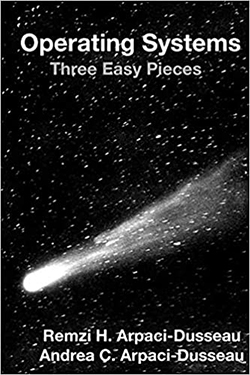 |
Check Price |
| Rating | 4.7 |
| Author | Remzi H Arpaci-Dusseau, Andrea C Arpaci-Dusseau |
| Number of Pages | 714 |
| Level | Intermediate and Advanced |
| Publication | CreateSpace Independent Publishing Platform. |
About the book:
The book to top our list of recommended operating system books is ‘Operating Systems: Three Easy Pieces.’ It is used to introduce university students to the workings of an operating system and its various mechanisms.
This book covers various concepts critical to constructing an operating system.
If you have had experience working with Linux and a little bit of Python, you can easily go through this book to build operating system construction concepts over your fundamental understanding of programming.
It is the best book for OS but is not meant for absolute beginners. This book begins with a simple system that is expanded gradually with every chapter as you learn about subjects like concurrency, virtualization, process scheduling, storage persistence and runtime environments.
You will love how these operating system books are easy to read and how the examples are hands-on.
Whereas other publications just mention race situations or the feasibility of I/O, this being the best book to learn operating system constructions, it shows them with functioning codes.
2. Linux for Beginners: An Introduction to the Linux Operating System and Command-Line
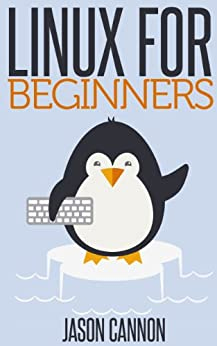 |
Check Price |
| Rating | 4.5 |
| Author | Jason Cannon |
| Number of Pages | 204 |
| Level | Beginner and Intermediate |
| Publication | Independently Published. |
About the Book:
Linux is the best open-source operating system to start with learning about an operating system’s various aspects and functionalities. It is one of the best books for operating systems if you want to learn everything about Linux systems from scratch.
This book adopts a thorough approach, compiling all the material in one place and providing clear explanations so that you have all the parts of a jigsaw.
If you are an absolute beginner who aspires to learn about operating systems and are in search of some suitable operating system books, you must own a copy of this book.
It does not skip over stuff that others would consider irrelevant or trivial. Most newcomers are in love with the comprehensive approach of this operating system textbook.
If you follow the instructions in this book, you will be able to construct a solid foundation that will allow you to advance past many experienced Linux users quickly.
3. Operating System Design: The Xinu Approach (Second Edition)
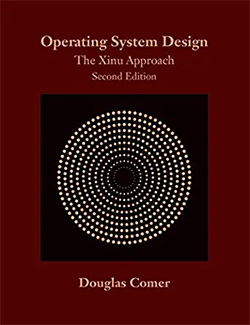 |
Check Price |
| Rating | 4.4 |
| Author | Douglas Comer |
| Number of Pages | 701 |
| Level | Beginner and Intermediate |
| Publication | Independently Published. |
About the Book:
‘The Operating System Design: The Xinu Approach’ is one of the best books for operating systems because it timely updates to keep itself current and fresh with examples of how operating systems work today and expands its interactive aspects to enhance the student’s learning experience.
It mixes concepts training with application scenarios so that students may comprehend the knowledge used in practice, making it one of the best operating system books.
The author himself is the creator of XINU, which is an educational purpose operating system. XINU stands for XINU Is Not UNIX.
This operating system textbook is a hands-on guide for any operating system construction. The abstractions used in this operating system, despite being named similar, are very different from those made in UNIX.
Along with online OS courses, it is one of the best books to learn operating system workings and construction where the author guides you through the very basic concept building definitions and terminologies towards the complex programming skills that are gradually built upon the fundamentals.
Throughout your journey XINU will be your practical project to work on and get better at.
4. Operating System Concepts (Ninth Edition)
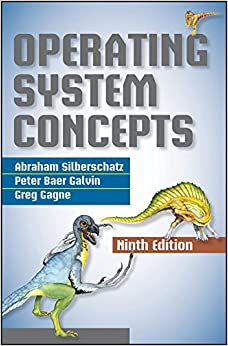 |
Check Price |
| Rating | 4.5 |
| Author | Abraham Silberschatz, Peter B. Galvin, Greg Gagne |
| Number of Pages | 976 |
| Level | Beginner and Intermediate |
| Publication | Wiley Publications |
About the Book:
This book is another one of the best books for operating system concepts. With the fast-changing technologies and ideas used to develop operating systems and the ever-increasing role played by them as virtual machines, our appreciation for the role of operating systems in programming various application software is increasing.
This is one of the few operating system books which get regularly updated in accordance with a significant amount of updates in the world of operating systems.
This is the best book for OS if you want to update your understanding of mobile computing, virtualization and multi-core systems. This book helps you to dive deep into the topics of process synchronization and resource distribution.
The Linux-based chapter has been thoroughly revised and edited to remain relevant with the new Linux kernel version 3.0. The book also offers various programming exercises and problems for the readers to grasp the fundamentals and the concepts built upon them.
5. Modern Operating Systems
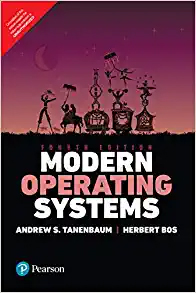 |
Check Price |
| Rating | 4.5 |
| Author | Andrew S Tanenbaum |
| Number of Pages | 1136 |
| Level | Beginner and Intermediate |
| Publication | Pearson India Publications |
About the book:
Next in our list of best operating system books, we have Modern operating systems by Tanenbaum. As a beginner, you will truly appreciate the book’s extremely clear explanations of OS jargon and details such as processes and page replacement algorithms.
It also briefs you about the C programming language given its importance in programming various operating systems.
After each chapter in this operating system textbook, there are also some challenging review quizzes and projects. It necessitates some careful consideration and a wider knowledge of the chapter’s events.
Integration with extra content online strengthens the book. You’ll find the source code for each chapter and the solutions to the practice exercises on it.
This frees up space in the text by eliminating the need to provide the codebase or answers, which is common to other operating system books.
This is the best book for OS for tech students and working professionals where the former might want to have a better grip over its regular academic syllabus and the latter to review and sometimes update its existing knowledge base.
6. Guide to Operating Systems (Fifth Edition)
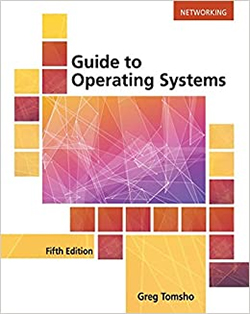 |
Check Price |
| Rating | 4.3 |
| Author | Greg Tomsho |
| Number of Pages | 688 |
| Level | Beginner and Intermediate |
| Publication | Cengage Learning |
About the Book:
Being a beginner, you will not be going extensively into the topics related to operating systems in this operating system textbook. This book is a brief introduction to the operating system theory.
It is especially meant for absolute beginners where in contrast to other best operating system books, it introduces them to the various aspects of an operating system, starting from the very basic process of installing and configuring the newly installed operating system.
From there, it takes us to the core concepts like virtualization, resource sharing, network connectivity and file systems, where it gives their brief introduction with some analogical explanations.
It adequately covers Windows systems, with a brief discussion of macOS and Linux thrown in for good measure. The fact that negotiates it as one of the top books is the projects after each chapter, where the true value is found. Ambitious students enjoy these challenging projects.
Cons: Even though it is regarded as one of the best books for operating system content-wise, the physical features of the book, the print quality and the binding quality could have been better.
7. Windows 11 For Dummies (First Edition)
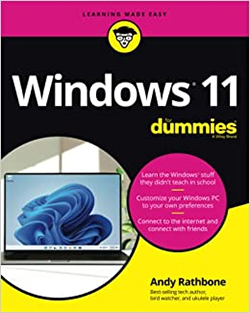 |
Check Price |
| Rating | 4.4 |
| Author | Andy Rathbone |
| Number of Pages | 464 |
| Level | Beginner and Intermediate |
| Publication | For Dummies Publication. |
About the Book:
Another book on our list of the best operating system books is Windows 11 for Dummies. It is a book not about operating system construction but about using Windows 11 and its various features.
This book is your tour guide for Windows 11 which starts with an introduction to the various utilities, like the start menu, taskbar, icons, etc., and functions provided to you by Windows 11.
It is a Windows operating system textbook for absolute beginners using Windows 11 for the first time.
If you are searching for a book that guides you through the basic features of using Windows 11 like the start button, muti-user accounts, widget customization, wifi connectivity, etc., then it is the best book to learn operating system functionality.
These operating system books also guide you through the accessibility of using any of your multi-user accounts on any Windows 11 enabled system just by logging into your Microsoft account.
Moreover, being pronounced as the best book for OS, it also teaches you about the troubleshooting feature of this operating system that lends you a helping hand every time you get stuck.
8. Operating System Concepts (Tenth Edition)
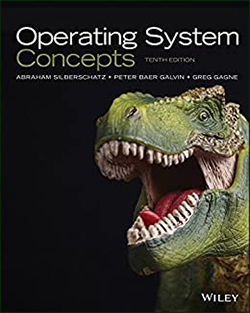 |
Check Price |
| Rating | 4.3 |
| Author | Abraham Silberschatz, Peter B. Galvin, Greg Gagne |
| Number of Pages | 1040 |
| Level | Beginner and Intermediate |
| Publication | Wiley Publications |
About the Book:
Anyone who is inexperienced with the Linux operating system and kernel should read this operating system textbook. Because the demonstrations are all written in C language, it is strongly recommended that you have a solid knowledge of the language.
Simply learn the fundamentals of the C programming language, including how to work with pointers, and you should be able to go through with this book.
We also discovered that this book, rather than scouring the web, was a superior resource for figuring out typical operations in system development which makes it eligible to be kept along with the best books for operating systems.
Throughout the text, ample supplementary online resources in the form of new interactive self-assessment tasks are included to help students track their learning and development.
To remain one plus over other best operating system books, this one provides students with a Linux virtual system where they can execute programming tasks and can view the results each time without actually having to run the written code, with an objective to help them engage more deeply with the content.
9. Operating System Concepts (Eighth, Updated Edition)
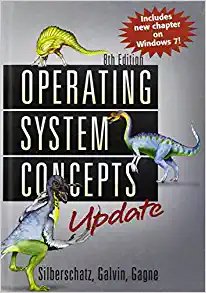 |
Check Price |
| Rating | 4.5 |
| Author | Abraham Silberschatz, Peter B. Galvin, Greg Gagne |
| Number of Pages | 972 |
| Level | Beginner and Intermediate |
| Publication | Wiley Publications |
About the Book:
Have you been looking for a OS book which can help you rehash the basic fundamentals and grasp complex ideas? This one is among the best operating system books and the most thorough reference you will ever come across if you are a beginner with Linux.
This book in context is as wide as it is deep, and it contains the most vital and practical knowledge that any professional administrator should be aware of. The knowledge you will gain from this operating system textbook will serve to be a firm foundation for a rewarding career.
Whether you’re pursuing a career in Linux or just want to use a safe operating system, there’s something for everyone.
The illustrative graphics, which help students immerse themselves into the content of the book, and practical examples, which help them prepare for the real-world challenges faced when dealing with huge operating systems, in this book are unparalleled.
If you truly want to reinforce the concepts, the practical implication is the only way around. It is the best book for OS and has been designed with a similar objective, providing challenging projects and comprehensive text.
10. Operating Systems Design and Implementation (Third Edition)
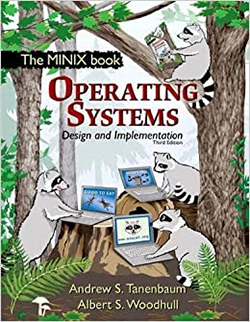 |
Check Price |
| Rating | 4.5 |
| Author | Abraham Silberschatz, Peter B. Galvin, Greg Gagne |
| Number of Pages | 972 |
| Level | Beginner and Intermediate |
| Publication | Wiley Publications |
About the Book:
The third edition of Operating Systems Design and Implementation has been revised to maintain its relevancy with the changing ideologies of how operating systems operate, unlike other operating system books, to motivate application-based learning and students’ experience in the topic.
This operating system textbook mixes concept training with real-world applications to help students grasp the actual applicability of the topic. End-of-chapter puzzles, review questions and programming projects serve to reinforce the key topics.
New interactive self-assessment tasks are included throughout the book to assist students in tracking their level of comprehension and development, which made us consider it as one of the best books for operating systems.
This is the best book to learn operating systems, which gives a hands-on experience of developing and modifying a contemporary operating system by working with a considerably improved version of the MINIX operating system.
It covers topics like CPU processes and scheduling, file system reliability and security in great detail, which immensely help students get a good grasp of understanding and further build the workings of an operating system.
Conclusion
This was a list of the best books for operating systems where we came across many brilliantly written books suited for everyone starting from beginners to professionals.
These books are well-equipped with knowledge-based content, which can add to your understanding of operating systems irrespective of your knowledge level. So these are among the many reasons we title them the best operating system books.

